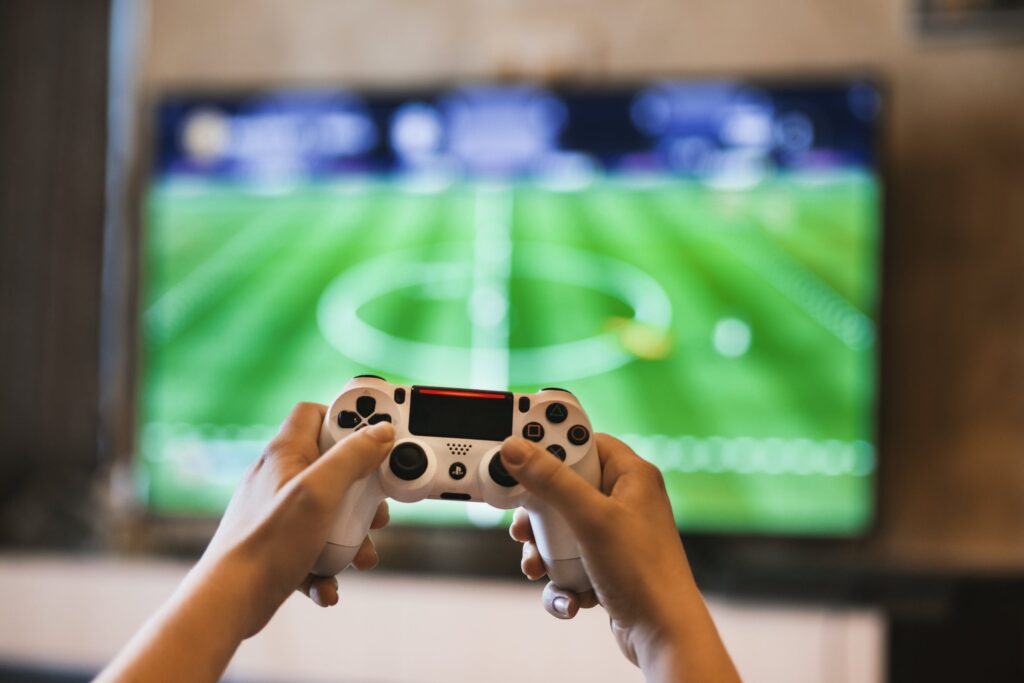How Does Esports Success Translate In The Real World?

There was once a time when video games — and video gamers — were somewhat looked down upon by, well, people who didn’t play them. But that’s beginning to change now. Studies have shown that there are, in fact, advantages to playing video games, including increased social skills, critical thinking skills, and perseverance levels.
And the more advanced games become, the more benefits there are. This is especially true of sporting video games. In recent years, these games have developed to such an extent that they can have an impact on a gamer’s real-world understanding and enjoyment of the sport. In this blog, we’ll look at some ways it does just that by examining FIFA and how it influences a person’s real-world soccer life.
Understanding The Best Teams and Players
If you played FIFA enough, you would learn about the best players and teams in the world even if you never watch real-world matches. Why? Because the game makers spend a lot of time ensuring that their player ratings are in sync with reality. The best teams and players in FIFA are the best in the real world, too. So you’ll have a pretty solid understanding of which team might win a match just by playing with or against their video-game counterparts. Of course, it doesn’t always translate, so to check consistency you could put your knowledge to the test with a risk-free bet from Caesars Sportsbook, just in case a player’s form has fallen through the floor since FIFA gave them their rating.
Playing FIFA can help soccer fans get an edge over non-playing fans, too. The boffins that give players their ratings scout the next up and coming hot talent and ensure that their rating increases as the years go on. If you can complete a few seasons’ worth of FIFA, then you’ll know which young players to keep an eye out for. They might just be world-beaters one day.
Tactical Systems
It’s entirely possible that the average FIFA player has a better understanding of the tactical side of soccer than non-playing fans. Fans that watch the game on television can understand the formations at a basic level (as in, they know that 4-4-2 means four defenders, four midfielders, and two attackers), but that could be it. Someone who manages a team in FIFA will know not only the formations, but how to utilize them to full effect.
Playing Better
A sporting video game won’t help a player’s real-world skills if they’ve never played the game before. But it may happen if they play regularly. One thing that some games — again, like FIFA — show is how to give yourself subtle advantages on the field. For example, space. A good FIFA player will always try to take advantage of space. They’ll know when to hold onto the ball until one of their players has made a run into a dangerous area. And that’s a way of thinking that can be extremely useful on the field. It’s a subtle improvement, sure, but one that can be gained through experience on video games.
How It Doesn’t Help You
Of course, it’s important not to exaggerate the positive impacts of playing FIFA on a person’s understanding of the game. There are clear limitations. Playing a video game of a sport won’t make you run faster or give you the physical attributes to compete for ninety minutes. It’s also true that sports games are pretty perfect; a pass will go where the player wants it to go. That is generally what happens at the highest level of sports, but that’s not the level that most people play at. Lower level sporting matches can, on occasion, be a comedy of errors, and that’s not something the developers are keen to include in their video games.
If there’s one thing that sports games can’t teach you, it’s just how difficult these games can be in real life!






No Comments